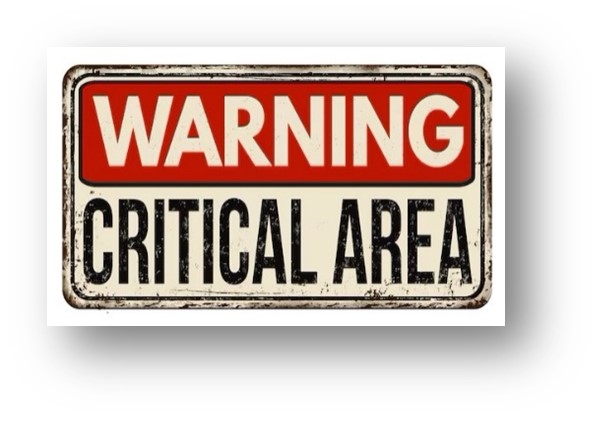
Why Financial Literacy is Your Key to Financial Success
FINANCIAL ADVICE | GUIDANCE | INSIGHTS | OBSERVATIONS
Enhanced Decision Making
We all know that having the right information at the right time is the basis for good decision-making. And when the power of this knowledge is essential to our financial success, not only does ‘having it’ beat ‘not having it’ hands down, but it could make all the difference to achieving our goals and dreams.
KEY TAKEAWAYS
- The term “financial literacy” refers to understanding a variety of important financial skills and concepts.
- Financially literate people are generally less vulnerable to financial fraud.
- A strong foundation of financial literacy can help support various life goals, such as saving for education or retirement, using debt responsibly, and running a business.
- Key aspects of financial literacy include knowing how to create a budget, plan for retirement, manage debt, and track personal spending.
- Financial literacy can be obtained through reading books, listening to podcasts, subscribing to financial content, or talking to a financial professional.
Risk comes from not knowing what you’re doing
In a world that typically rewards being right and having it all together, leaning into the unknown can foster apprehension. In fact, admitting we don’t have it all together can make us feel foolish, and so we often put on a brave face and cling to the veneer of confidence, whilst fearing that we may be ‘outed.’

Have you ever put on a facade of appearing to have it all figured out when underneath the surface, you were filled with doubts and uncertainty?
If so, you’re not alone. It’s always okay if we don’t know something. That makes us human.
Yet, somehow using the words “I don’t know” has become so taboo that acknowledging it can bring immense embarrassment, fear and doubt. Whilst this would pose some difficulty if you found yourself in a room full of astrophysicists, when it comes to making a success of our finances and growing wealth, it is essential to understand what we don’t know.
It’s also vital to acknowledge it. It becomes problematic when we realize we don’t know something that we need to and do nothing about it.
“Maturity, one discovers, has everything to do with the acceptance of not knowing.”
– Warren Buffett

Not knowing and recognizing this becomes the cornerstone of evolving as individuals and growing. Only by actively and intently listening and understanding can we begin to narrow the gap between what is known and what needs to be known.
When It Comes To Your Finances, You Have to Know What You Don’t Know
The fact is, it’s likely that there’s more you don’t know than you do know. The problem is, we hate that issue and avoid dealing with it. The whole notion of the unknown just rubs us the wrong way.
Our inability to respond to the unknown and reflect on what we don’t know will cause us to stumble blindly from a place of fear. It may well cause us to fail.

We can fail as a result of both a lack of knowledge and holding to the wrong assumptions.
Assumption is the mother of failure and this classic Mark Twain quote sums up the danger: “It’s not what you don’t know that gets you into trouble; it’s what you think you know for sure that just ain’t so.”
Honesty is the gateway to success.

We received a call this week from someone looking for a financial planner. The conversation went something like this…
“Hi, my wife and I are looking to work with a Seattle-based financial planning firm and were given your names by my father-in-law.”
“Great,” we said. “How can we help?”
“Well, we are facing a lot of financial issues. Up until now, I’ve handled our money on my own, but I’ve realized I just don’t know enough. I mean, I’ve opened 529 plans, we’ve invested in our companies’ 401(k) plans, and we have an emergency fund that would take us through 7 or 8 months of expenses. But frankly, I’m at a loss to know whether we’re saving enough, whether our investments will meet our needs long-term, and whether we’ll be able to send our kids to college and retire comfortably. For that matter, I honestly don’t know what I don’t know. It’s very confusing and overwhelming!”
What a great place to start!

Imagine understanding your finances, financial instruments and the industry so well that reaching your personal objectives becomes a mere formality.
But steering your financial life is not the same as learning how to fix a tire puncture, repair a dishwasher, or learn how to play guitar.
The only way to get there is to become highly financially literate, but It’s difficult – if not impossible – to know it all if it’s not your full-time profession.
The safer, quicker and (we believe) more astute route is to partner with a financial planner whose life is all about finances and can advise and help you to make the most of yours.
Financial knowledge empowers you to make informed decisions about your finances, which is crucial for wealth creation and long-term financial success.
- Effective Management: Understanding financial concepts enables you to effectively manage your finances. You can create budgets, track expenses, and make informed decisions.
- Investment Decisions: You can make sound investment decisions, analyze investment options, assess risks, and choose investments that align with your goals and risk tolerance.
- Asset Allocation: Knowing how to allocate assets across investment vehicles such as stocks, bonds, real estate, and commodities is crucial for diversification and risk management. Financial knowledge helps individuals create a well-balanced investment portfolio.
- Debt Management: Financial literacy allows you to understand different types of debt, such as mortgages, credit cards, and loans, and develop strategies to optimize how debt is used to help reach your financial goals.
- Tax Planning: Understanding tax laws and regulations helps you optimize your tax liabilities, take advantage of tax-saving opportunities, and maximize your after-tax income.
- Retirement Planning: You can understand how much you need to save for retirement, how to invest your retirement savings, and how to manage income streams in retirement.
- Risk Management: You get to assess and mitigate financial risks and understand insurance products to protect yourself and your assets against unexpected events.
- Long-Term Wealth Preservation: You get to preserve and grow your wealth over the long term, making informed financial decisions to build a solid financial foundation for yourself and future generations.
Comprehensive financial planning includes a thorough understanding of a wide number of financial topics, such as Cash Flow management, Investments, Risk Management, Estate Planning, College Planning, Retirement Planning, Tax Planning, Social Security/Medicare Planning, Elder Care Planning, Business Planning etc.

A co-pilot you can count on in your cabin
We’ve seen how our clients’ financial decisions are wrapped in their beliefs, their fears and dreams. Their decisions become complex, mainly because there’s a high degree of subjectivity to decision-making. After all, each client’s goals are unique to them and their family. The choices they are faced with are specific to them and their situation.
We’re able to stand beside them and to view their goals and circumstances objectively, with a sound understanding of their options and the impacts of their decisions.
If you have questions about your specific circumstances, or want to talk further about the benefits of having experienced financial professionals help you steer your financial life, please get in touch.
We welcome the opportunity to chat with you, and wish you every success in the future.
Sam Gullette & Erik Alexander

Sam Gullette, CFP®, CLU®
Certified Financial Planner™
‘My mission in life is to help people take control of their money and avoid financial stresses. My clients are successful professionals and executives, many of whom are compensated heavily with company stock. Together we maximize their wealth-building opportunities, minimize taxes, and make sure their family is protected if life throws them a curveball.’

Erik Alexander
Financial Consultant
‘I work with professionals and executives who are compensated through various forms of company stock. They have more money than time and struggle to balance the key aspects of their lives. Their decisions affect others, and they feel a huge responsibility towards making them wisely. I enjoy helping them solve their complex problems, and being counted on for their and their families’ financial wellbeing.’
Disclosures:
A diversified portfolio does not assure a profit or protect against a loss in a declining market.
For a comprehensive review of your personal situation, always consult with a tax or legal advisor, Neither Cetera Advisor Networks LLC nor any of its representatives may give legal or tax advice.

